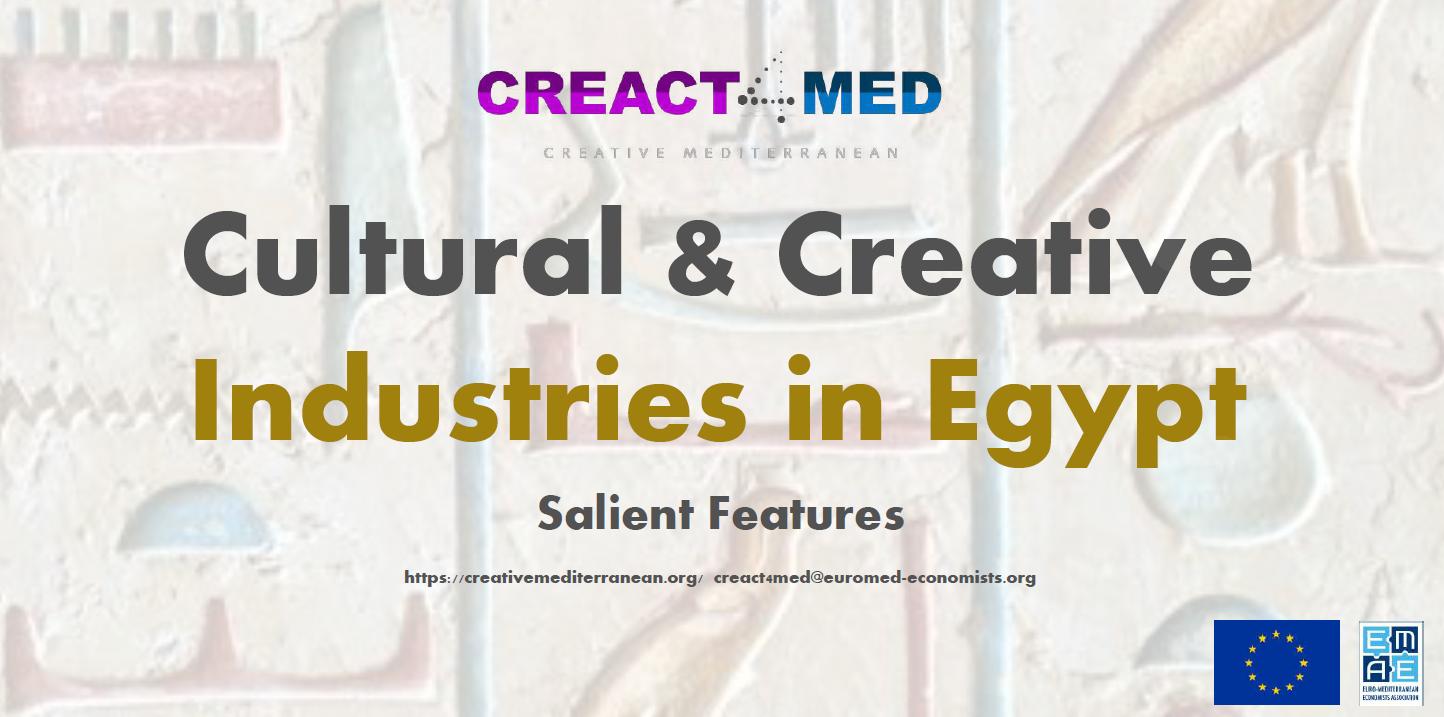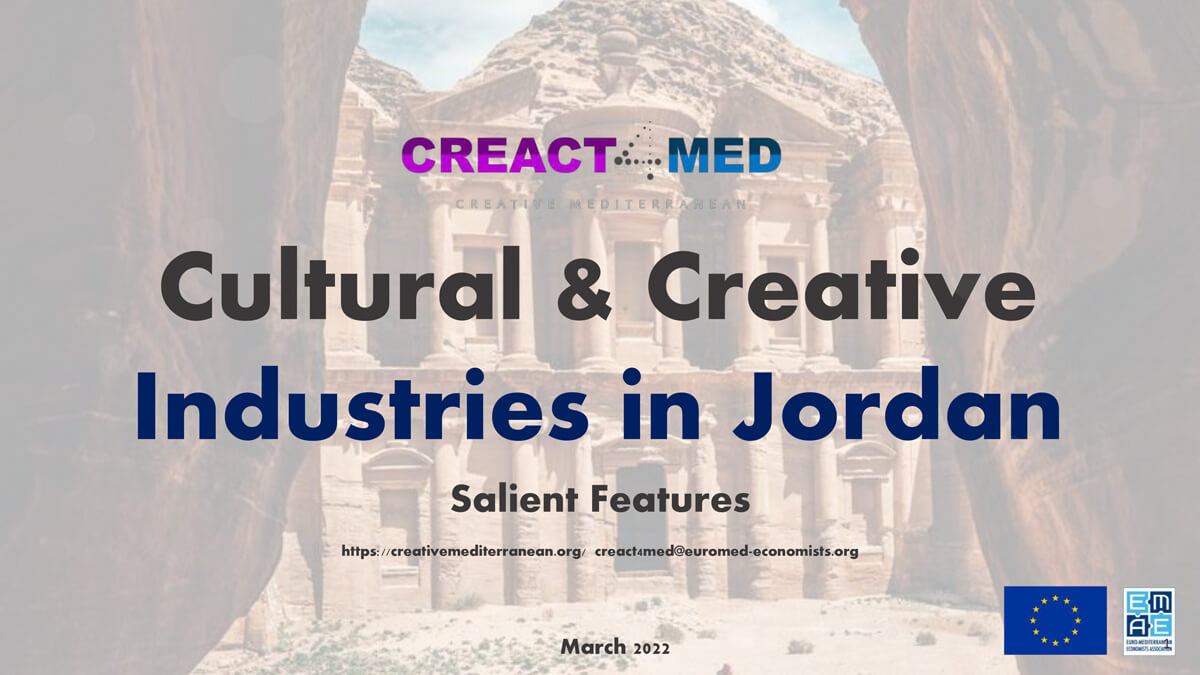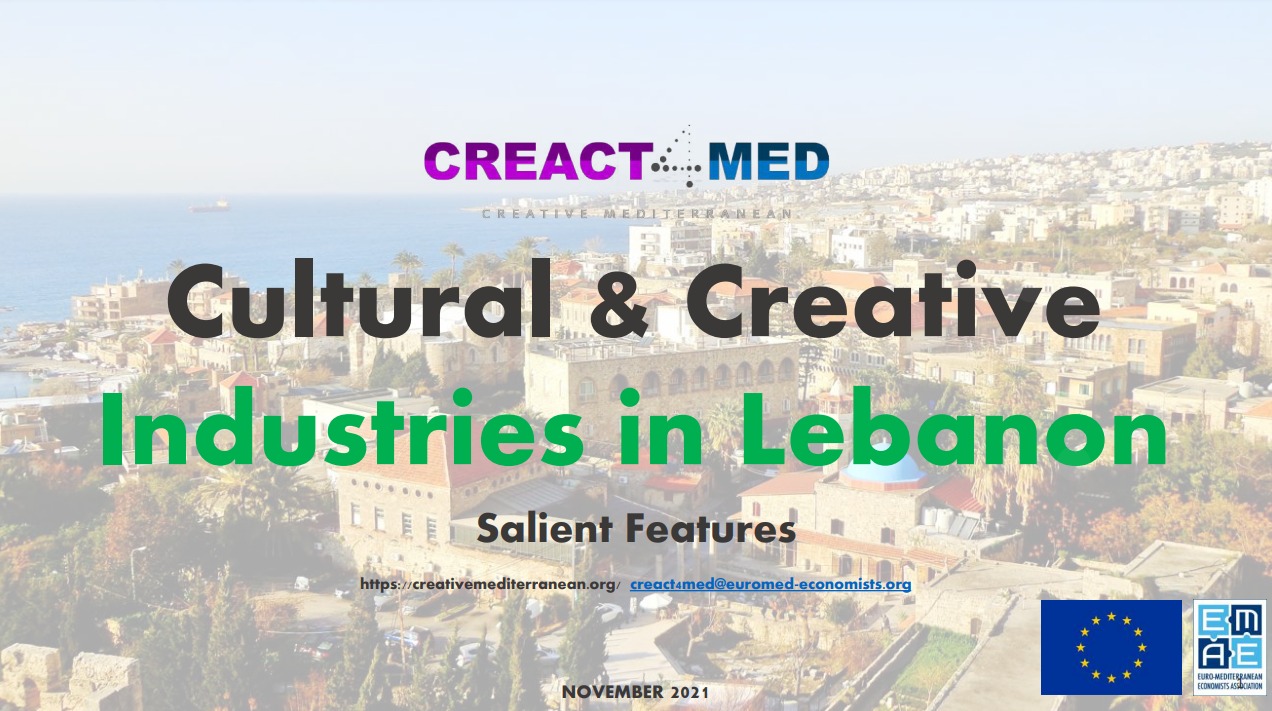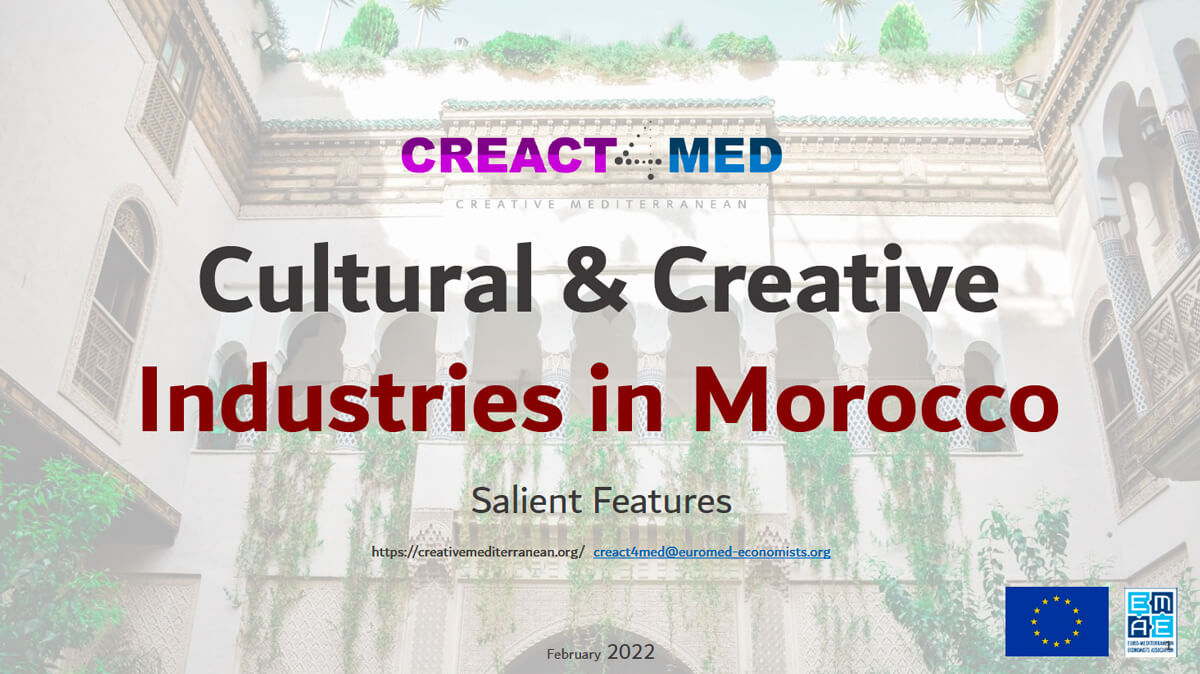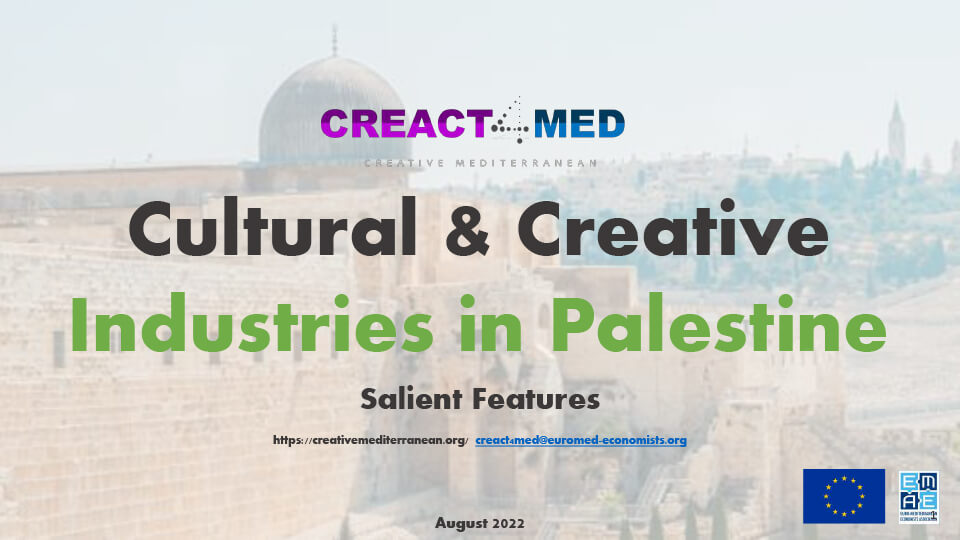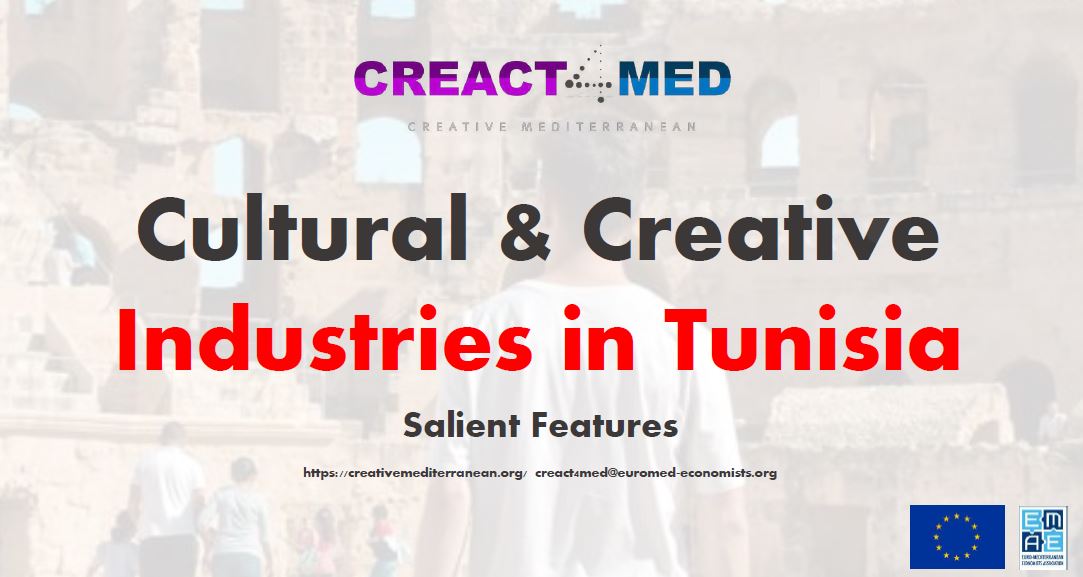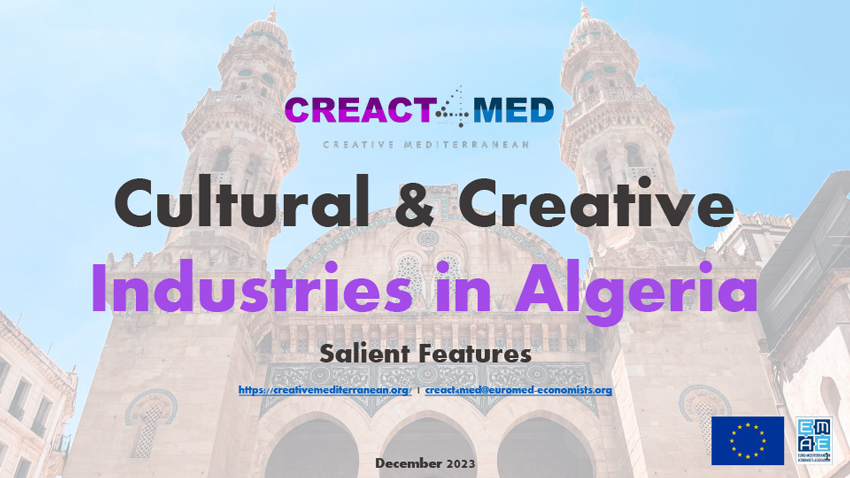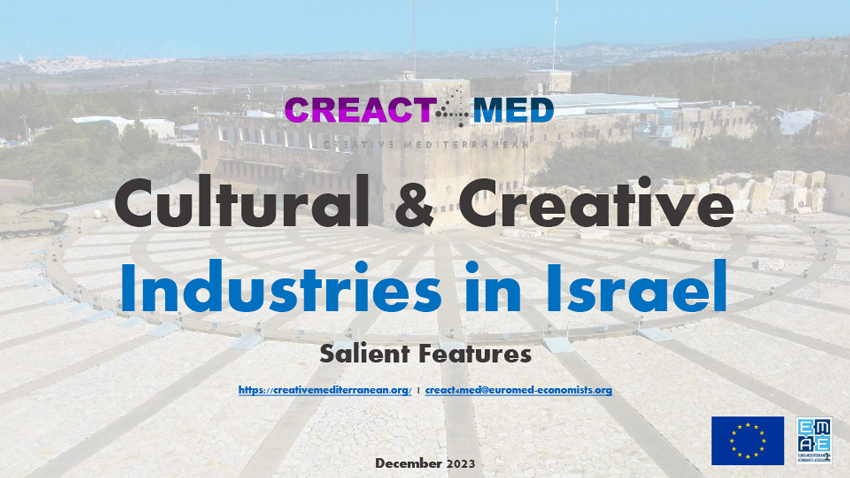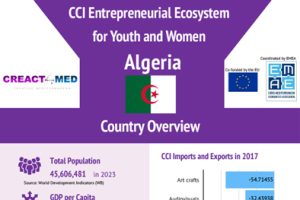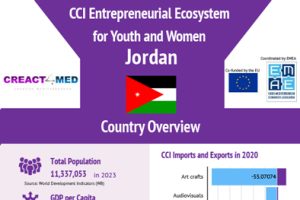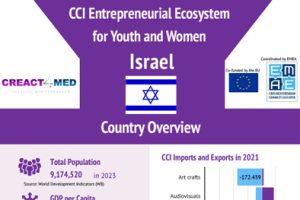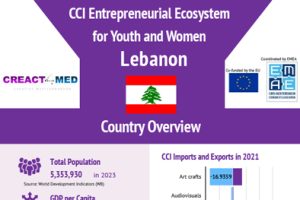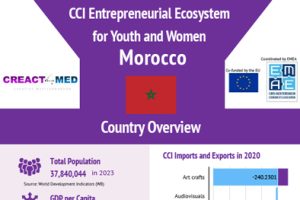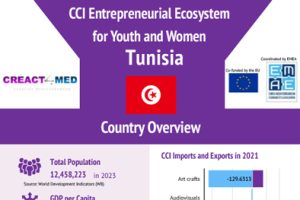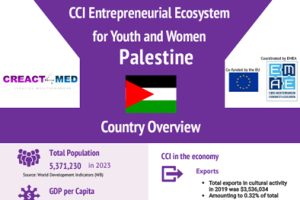The CREACT4MED project carries out mapping of the cultural and creative industries in the region. As a result, the project has produced a report for each of the target countries and has developed a Data Observatory showing reliable data on the CCI economic sectors. Finally, the project is collecting Best Practices of cultural and creative entrepreneurship, ecosystem enablement, and local or regional cooperation in the Southern Mediterranean.
Country Reports
The first pillar of CREACT4MED’s activities is mapping the current landscape of the cultural and creative industries (CCIs) in the project’s target countries. The aim of this exercise is to identify the key figures, actors, initiatives, cultural infrastructures, opportunities and obstacles in each of the target countries, with a view to uncovering and raising awareness of unexploited entrepreneurship and employment opportunities and developing appropriate support initiatives and policy recommendations. You can read the reports by clicking the buttons on the right or head to the resources page.
Within this pillar, the project has complied country reports give a brief overview of the economic situation of the country and the salient features of its existing CCI and entrepreneurial ecosystems. The process involved desk research, consultation workshops with key CCI stakeholders in each country, and input from the CREACT4MED Technical Expert Group (TEG), which is a multi-disciplinary group of renowned regional and local experts, set-up for the purpose of this project, including project partners, external participants, and observers. Five TEG meetings were held between November 18, 2021, and February 25, 2021. The result is the identification of national and international initiatives impacting CCIs, as well as key actors including government, private sector, associations and NGOs, and academia. Finally, the reports discuss challenges and opportunities with the CCI sector and give a series of policy recommendations.
CCI Data Observatory
The CCI Data Observatory collects and shows reliable available data on Cultural and Creative Industries (CCI) in the CREACT4MED target countries. The dashboard is composed of two main pillars:
1) CCI contribution to the economy: in this pillar we gather information on the contribution of the underlying sector to economic activity, in terms of value added, job creation, and exports
2) CCI enablers: in this pillar we collect information on factors which can enhance the development of CCI underlying sectors such as policy and legislation, digital and cultural infrastructure.
In parallel, we will provide information from the perspective of sectors and industries within the cultural and creative economy.
Check it out by clicking on the button below.
Infographics
To complement the CCI Observatory, the project has also developed infographics for each target country. Each one demonstrates key data to build a picture of the CCI ecosystem such as the CCI contribution to imports and exports, the level of entrepreneurial activity, women and youth empowerment, and social perspectives of entrepreneurs.
View them below or head to the Resources page :
Policy recommendations and country action plans
In addition to mapping and best practices, CREACT4MED has developed a Regional Policy Paper aimed at unlocking the creative potential of the South Mediterranean region. This comprehensive document proposes a set of recommendations designed to build a thriving CCI ecosystem that fuels economic growth, empowers artists, and enriches the cultural landscape of the region.
Moreover, country-specific policy action plans provide actionable recommendations adjusted to the unique context of each target country, drawing on the experience and knowledge collected throughout the project. These plans address key challenges and opportunities, and offer strategic guidance for policymakers to create an enabling environment for the cultural and creative industries.
Best Practices
Finally, throughout the lifetime of the project, CREACT4MED has been collecting examples of “Best Practices” to map cultural and creative entrepreneurship, ecosystem enablement, and local or regional cooperation in the Southern Mediterranean. The first call was opened in 2022, and the second in Autumn 2023, however, we are still open to receiving applications, so if you have a best practice to share, please email creact4med@euromed-economists.org.
The best examples are now published in the Best Practice Repository. Filter by country, by theme, and by subsector to help you in your cultural and creative venture and learn from other people’s successful examples. One Best Practice from each country will be awarded a prize in acknowledgement of its contribution to boosting CCI entrepreneurship and enhancing sustainable and inclusive growth in the region during the project’s final conference in 2024.

